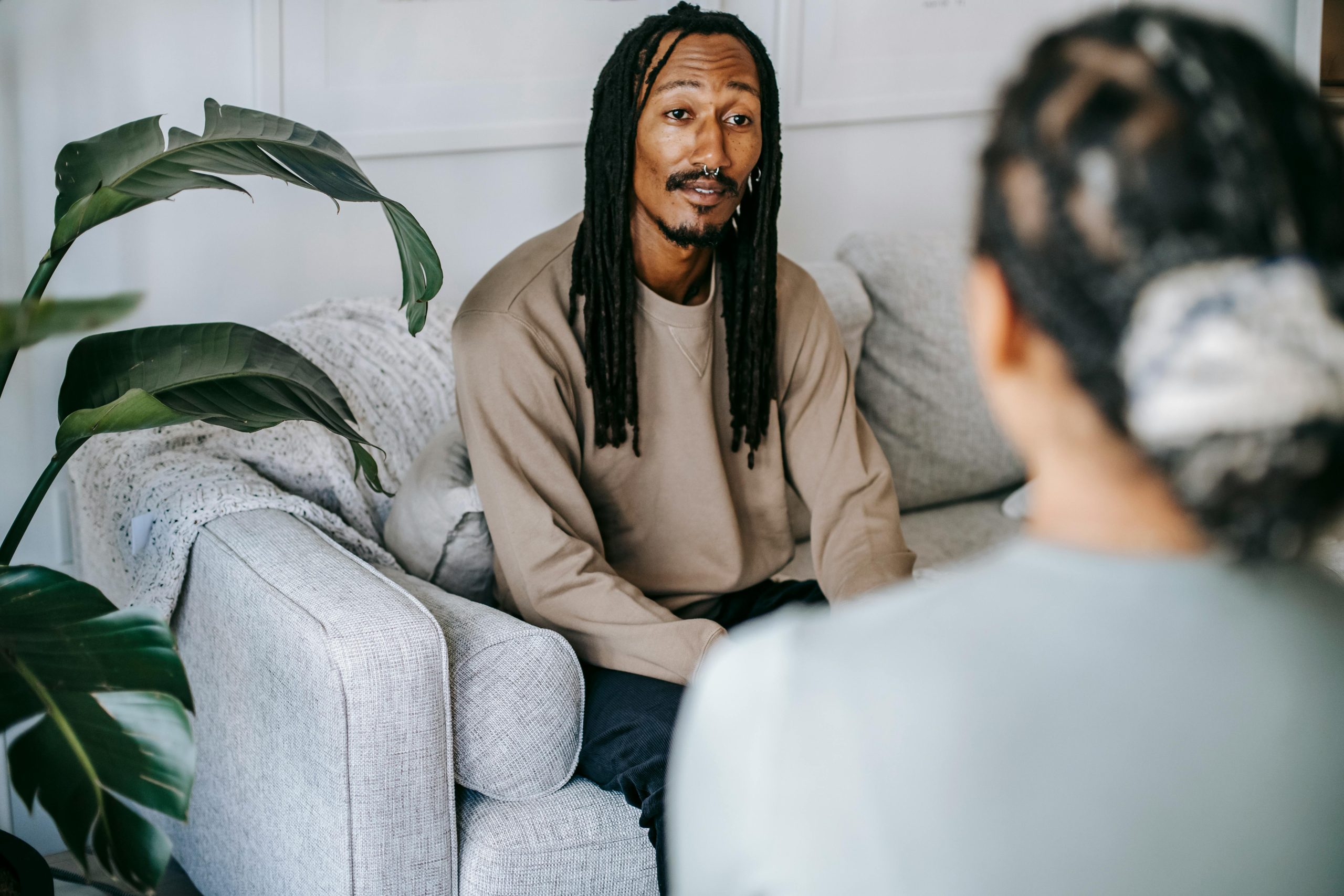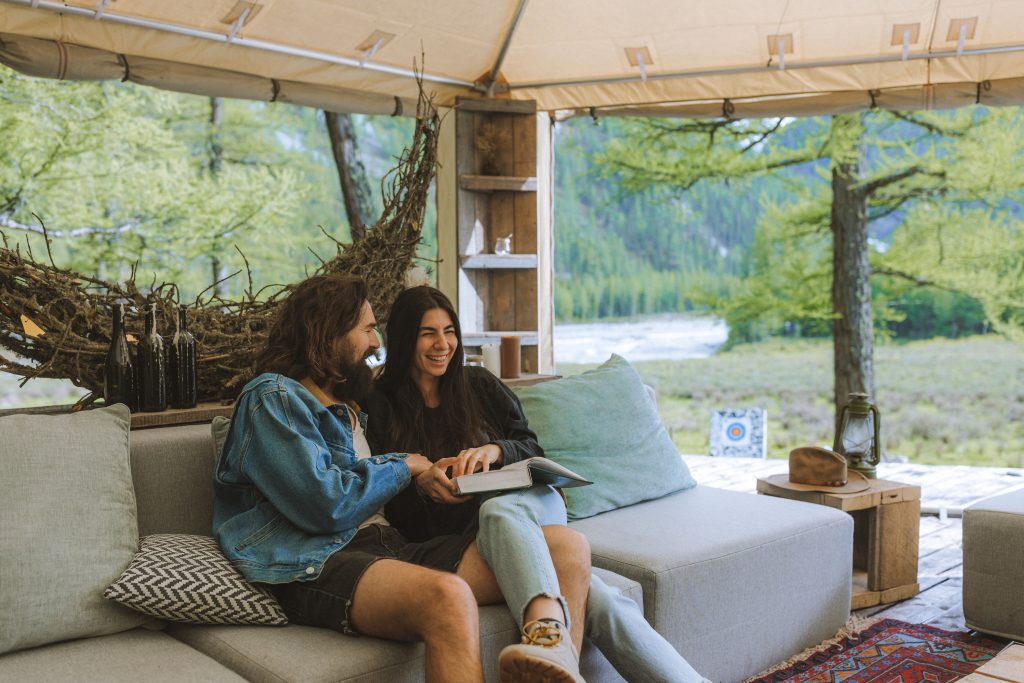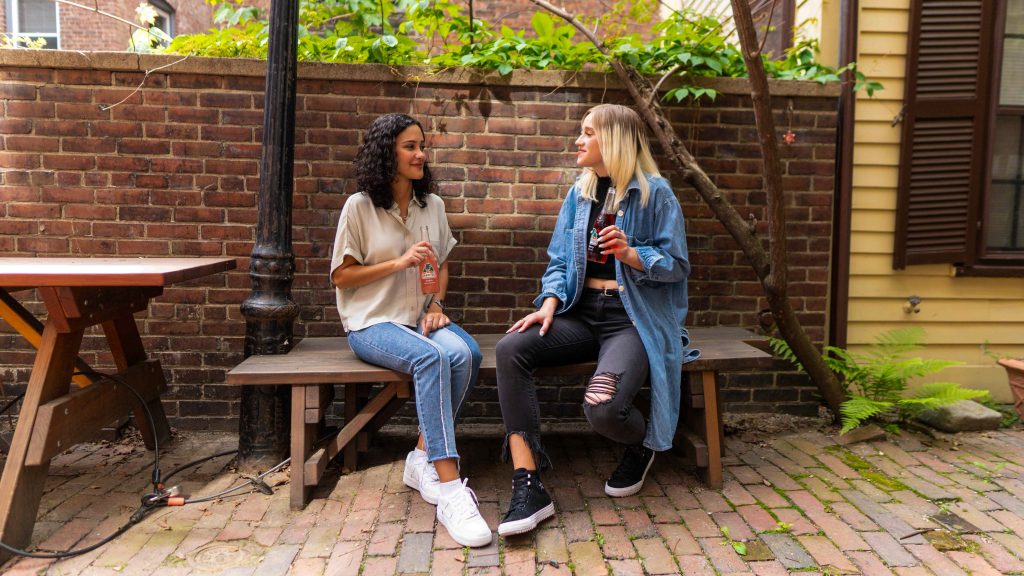Open-Ended Questions: Everything You Need to Know
Open-ended questions are powerful tools used in various fields of communication. They allow for open and free-flowing discussions, providing a platform for individuals to express their thoughts and ideas without limitations. Unlike closed-ended questions that elicit short and specific answers, open-ended questions promote deeper thinking and reflection.

Open-ended questions are powerful tools used in various fields of communication. They allow for open and free-flowing discussions, providing a platform for individuals to express their thoughts and ideas without limitations. Unlike closed-ended questions that elicit short and specific answers, open-ended questions promote deeper thinking and reflection.
The use of open-ended questions isn’t limited to just one area. From business meetings to therapy sessions, open-ended questions find their place in various settings. They are also commonly used in journalism and research interviews to gather rich, detailed information from participants.
One of the key benefits of using open-ended questions is that they encourage active listening and promote empathy. By giving individuals the space to share their perspectives, they allow for a deeper understanding of their thoughts, feelings, and experiences. This can be particularly helpful in building relationships and fostering deeper connections with others.
What are open-ended questions?
Open-ended questions are a type of question that allows for open, lengthy responses from the respondent. Unlike closed-ended questions, which only offer a limited set of response options, open-ended questions don’t restrict the answers in any way. They can be answered with as much detail and depth as the respondent wishes to provide.

Answering open-ended questions requires more thought and effort compared to closed-ended questions. They can provide a deeper understanding of a person’s perspective, beliefs, and experiences as they allow for personal interpretation and expression. Open-ended questions often start with the words “how” or “why” and can also begin with phrases like “tell me about,” “describe,” or “explain.”
An example of an open-ended question is: “How do you think technology has impacted communication in our society?” This question doesn’t limit the respondent to a simple “yes” or “no” answer but instead invites them to share their thoughts, experiences, and opinions in a way that they choose to.
Open-ended questions can also be used in everyday conversations to promote meaningful discussions and deeper connections. They can be a powerful tool for active listening and showing genuine interest in what the other person has to say.
When asking open-ended questions, it is important to avoid leading or biased phrasing, as this can influence the response. In addition, it’s essential to give the respondent enough time and space to think and respond without interruptions.
What are close-ended questions?
Close-ended questions are those that can be answered with a simple “yes” or “no” or with a specific piece of information. These types of questions limit the respondent’s answer to a set of predefined options. They are often used to gather specific information or facts from someone. Examples include:
1. Did you finish the report? The answer here would simply be “yes” or “no”.
An open-ended question would be something along the lines of “How have you got on with the report?”
2. What time did you arrive at the office today? The answer would be a specific time.
An open-ended question would be, “How was your journey into the office this morning?”
3. Which color do you prefer: red or blue? The answer is limited to either red or blue.
An open-ended question would be, “What kind of colors do you prefer?”
4. Have you ever been to Paris? The answer can only ever be “yes” or “no”.
An open-ended question would be, “Have you ever thought about traveling to Paris?”
While close-ended questions can be useful for gathering specific information quickly, they don’t allow for open discussion or elaboration like open-ended questions. That isn’t to say that closed-ended questions are inherently wrong—they serve a purpose, and there’s a time and a place for them, too.
Why are open-ended questions important?
Open-ended questions are important because they allow for a wide range of responses and encourage deeper thinking and self-expression. Unlike closed-ended questions that have predetermined answer options, open-ended questions give respondents the freedom to provide their own unique perspectives and experiences.
By allowing individuals to share their thoughts and feelings without restrictions, open-ended questions can lead to more meaningful conversations and help build stronger connections. They also provide a valuable opportunity for individuals to reflect on their own experiences and gain new insights.
Moreover, open-ended questions are crucial in research and data collection as they allow for more detailed and diverse responses. Conducting surveys or interviews with only closed-ended questions can limit the information that is gathered and may not accurately capture the complexity of human experiences.

Additionally, open-ended questions can be used as a tool for problem-solving and critical thinking. By encouraging individuals to think outside the box and explore alternative perspectives, open-ended questions can help generate creative solutions.
Open-ended questions do’s and don’ts
So, now you know that open-ended questions are a great tool for sparking conversation, gaining deeper insights, and encouraging others to share their thoughts and feelings. Here are some do’s and don’ts when it comes to using them.
Do’s
- Be genuine: Show genuine interest in the person you’re speaking with and the answers they provide.
- Allow for silence: Sometimes, respondents may need a moment to gather their thoughts and formulate an answer. Allow for silence and avoid filling it with unnecessary chatter or prompting.
- Encourage elaboration: If the person gives a brief answer, encourage them to elaborate by asking, “Can you tell me more about that?”
- Stay neutral: Avoid leading the respondent towards a particular answer. Your questions shouldn’t imply what the “right” answer is.
- Keep it simple: Open-ended questions should be clear and concise. Avoid using technical jargon or complex language that may confuse the respondent.
Don’ts
- Avoid yes or no questions: These are closed-ended and don’t encourage in-depth responses.
- Don’t ask multiple questions at once: Stick to one topic or question at a time rather than bombard the respondent with multiple questions. This can lead to confusion and make it difficult for them to provide a meaningful answer.
- Avoid interrupting or interjecting: It is important to let the respondent finish their answer without interruption. Interrupting them can make them feel rushed or like their response is not valued.
- Don’t make assumptions: When asking open-ended questions, avoid making assumptions about the respondent’s knowledge or beliefs. Instead, allow them to express their own thoughts and perspectives.
- Don’t get distracted: Avoid getting distracted by your own thoughts or biases while the respondent is answering. Stay focused on their response and actively listen to what they have to say.
Remember, the goal of open-ended questions is to facilitate meaningful conversation, so ask thoughtfully and listen intently.
Open-ended question examples
Open-ended questions for friends
1. Can you tell me about a book or movie that really impacted you recently? Why did it leave such an impression?
This question is open-ended as it invites your friend to share their personal thoughts about a book or movie. This can lead to a discussion about themes, characters, and personal connections. This means you can find common ground and shared interests. Maybe you both have the same taste in movies, or you’ve both read the same book recently.
2. What was the best part of your day today and why?
This question is a great open-ended question because it allows your friend to share any detail about their day. It doesn’t limit them to a specific event or time frame. Sometimes, people can struggle with bigger-picture abstract questions, but simply asking them to talk about their day can be a great conversation starter that doesn’t require too much effort.
3. What’s your favorite way to relax after a long and stressful day?
This question doesn’t limit your friend to a prescribed set of relaxation methods. Instead, it allows them to share whatever method works best for them. There’s no right or wrong way to relax, so they’ll feel able to answer honestly.
4. Can you share a significant memory from your childhood?
This question is open because it doesn’t specify what kind of memory your friend should share. It allows them to choose a happy, sad, funny, or even embarrassing memory. If they choose to share something personal and sad, you should mirror their tone and reciprocate with openness and respect.

5. If you could change one thing about the world, what would it be and why?
This question doesn’t limit your friend to a specific issue or problem in the world. It gives them the freedom to discuss any topic they feel strongly about. By asking this, you have an opportunity to see what really matters to them and which causes are close to their heart.
6. Can you tell me about a time when you felt really proud of yourself?
This question is open because it doesn’t specify what kind of achievement or event your friend should talk about. This allows them to choose an experience that is personally meaningful to them. It encourages them to be reflective and open, which can help to build a deeper connection between the two of you.
7. If money wasn’t a factor, where would you want to live?
This question is a creative and fun open question because it allows your friend to use their imagination and come up with whatever answer they fancy. There’s no right or wrong answer, and there’s no chance that the conversation will fall flat because they’ll have an opportunity to discuss why they have chosen a specific place.
8. What is the most important relationship advice you’ve learned in your life so far?
This is an excellent open-ended question that all people will have an answer to. No matter who you are, you’ve had some form of a relationship at some point in your adult life, so this is an excellent question for getting people to reflect. The answers to this question can get you thinking.
Open-ended questions for partners
9. What was your favorite memory from the start of our relationship and why?
This question is open-ended because it allows your partner to choose any memory that holds significance for them. Reflecting on happy memories is a surefire way of igniting positive emotions, and this, in turn, helps to strengthen your bond. Maybe there was a certain date you went on that they loved, and this is your chance to recreate it. Or maybe there was a trip you took together that you could revisit.
10. What’s one thing that surprised you about our relationship?
This question doesn’t limit your partner to a specific aspect or time frame, allowing them to share any unexpected element. The surprise could be something positive, or it could be something that opens up a constructive conversation. Either way, this is a great question that could lead to an open and honest conversation between you and your partner.
11. Can you share one thing you’d like us to do more of as a couple?
This question is open-ended because it doesn’t restrict your partner to a particular activity or behavior. They can explore any kind of topic here, leading to a genuine, authentic conversation. It also gives you something to action as a follow-up, and the results can be very rewarding for both parties.
12. What’s your favorite quality about our relationship and why?
This question doesn’t dictate a specific quality; letting your partner share what they value most in your relationship. It’s a strong and positive open-ended question that can highlight those qualities you love about each other.

13. What is one challenge we’ve faced as a couple, and how do you think it helped us grow?
This question is open-ended because it doesn’t specify a particular challenge, allowing your partner to select an event and discuss its impact. It’s an opportunity to shine a positive light on any tough times you’ve faced together.
14. When do you feel closest to me?
This question is open because it allows your partner to reflect on moments of connection without prescribing a specific scenario. There’s an infinite amount of ways in which they can answer this question, and it also gives you hints for what you should do more of to make your partner feel more loved.
15. How do you envision our life together in 10 years?
This question is open because it encourages your partner to imagine your shared future, which could involve a whole range of scenarios. It’s a great question because it encourages exploration of a variety of topics, including your careers, family life, personal goals, lifestyles, and home.
16. Can you tell me about a time when you felt extremely supported by me?
This question doesn’t specify what kind of support your partner should talk about, giving them the freedom to choose an experience that is personally meaningful to them. By understanding what kind of difficulties your partner has faced and how you positively impacted their emotional state during that time, you will gain insight into how the two of you can work together in the future.
Open-ended questions for colleagues
17. What do you enjoy most about your role in this company?
This question is open-ended because it allows your colleague to speak about any aspect of their job that they find fulfilling or rewarding. It can be used as an icebreaker if you’re just getting to know a new colleague. The answers can be very revealing and give you insight into what your colleague values in their job. After all, happiness is an essential part of any career journey.
18. Can you share a professional accomplishment that you are particularly proud of?
This question doesn’t limit your colleague to a specific achievement, allowing them to share any accomplishment they value. It also gives you a chance to compliment them or ask for advice, which can help to strengthen your relationship even more.
19. How do you handle stress or pressure at work?
This question is open because it doesn’t prescribe a particular method for dealing with stress, letting your colleague share their personal strategies. It relies on them being open, which is important in establishing meaningful connections.
20. How do you manage your work-life balance?
This question is open because it encourages your colleague to share their personal approach to balancing professional responsibilities and personal life. This question allows your colleague to explore their own boundaries and values, which can help them think about how they are managing their time and energy. Additionally, it might provide insight into what motivates them as an individual.

21. What’s the most valuable piece of career advice you have ever received?
This question doesn’t dictate a specific piece of advice. Instead, it lets your colleagues share whatever guidance has been most impactful for them. The answer could be a personal anecdote, an experience from another industry or company, or a professional development resource they love to use. So go ahead and ask this question to hear insights that could get you thinking.
22. How do you approach problem-solving at work?
This question is open-ended because it invites your colleague to share their personal problem-solving process rather than prescribing a specific method. This question can give you a window into how someone’s brain works.
27. Can you share a particularly challenging problem you faced at work and how you overcame it?
This question is open-ended because it invites your colleagues to open up about whatever it is that they find challenging. It encourages them to be open and vulnerable whilst also reflecting on their own strengths and how they overcame the said difficulty.
28. What are some skills you would like to develop further in your career?
This question is a great open-ended query because there’s no right or wrong answer. Everyone has something they would like to work on, so it’s a great chance to connect and discuss this.
Open-ended questions for family
29. What’s your favorite memory from your childhood and why? This question is open-ended because it allows your family members to choose any memory that holds significance for them. It’s a rare opportunity to hear stories and moments that we may not have known about before.
30. How do you think our family has changed over the years? This question invites your family members to share their perspectives on the growth and changes in your family, which can lead to a deeper discussion. Additionally, it can provide insight into how your family dynamics have changed over time, what has been important in the past, and how life circumstances may have impacted the family.
31. Can you share a tradition you’d like us to start as a family? This question doesn’t limit your family members to a specific tradition or practice, allowing them to share any idea they have. While your family members might not agree on all traditions, everyone can share their ideas and come together to decide which ones to adopt.
32. What’s your favorite quality about our family and why? This question doesn’t dictate a specific quality, but instead, it lets your family members share what they value most in your family. It’s a great way to start a positive, uplifting conversation.

33. What’s a challenge our family has faced, and how do you think it helped us grow?
This question is open-ended because it does not specify a particular challenge, allowing your family member to select an event and discuss its impact. It can be used to gain insight into how your family member thinks about the event and reflect on its impact.
34. What makes you feel loved and appreciated in our family?
This question is open-ended because it invites your family members to share what makes them feel valued within the family. It can be easy to take your family for granted, so this question helps to remind everyone how important it is to show appreciation for each other.
35. How can we improve our communication as a family?
This question doesn’t limit your family member to a specific aspect of communication, allowing them to discuss any area they believe could use improvement. It gives them the opportunity to explain why they believe such improvements are necessary and suggest steps that could be taken in order to make them happen.
36. What are some things you admire about our family and why?
This question is open-ended because it allows your family members to choose any qualities or actions of the family that they admire. Ultimately, this question encourages positive reflection about the family and promotes an appreciation of its strengths.
Final thoughts on open-ended questions
The open-ended questions in this blog post are meant to be a gateway into better and more meaningful two-way discussions. They are meant to open the door of communication between you and whoever you are conversing with. Asking open-ended questions can help you both learn more about each other and, ultimately, build a stronger bond built on a foundation of authenticity.
Communication and mutual understanding are key to any successful relationship, be it romantic, platonic, or familial. Don’t be afraid to ask these questions and have honest, meaningful conversations. Knowing the answers to these questions will help you build a strong foundation for your relationship.
If you enjoyed this blog post, you might also enjoy 97 Smart Questions to Ask a Guy or 151 Deep Questions to Ask to Strengthen Any Bond.




